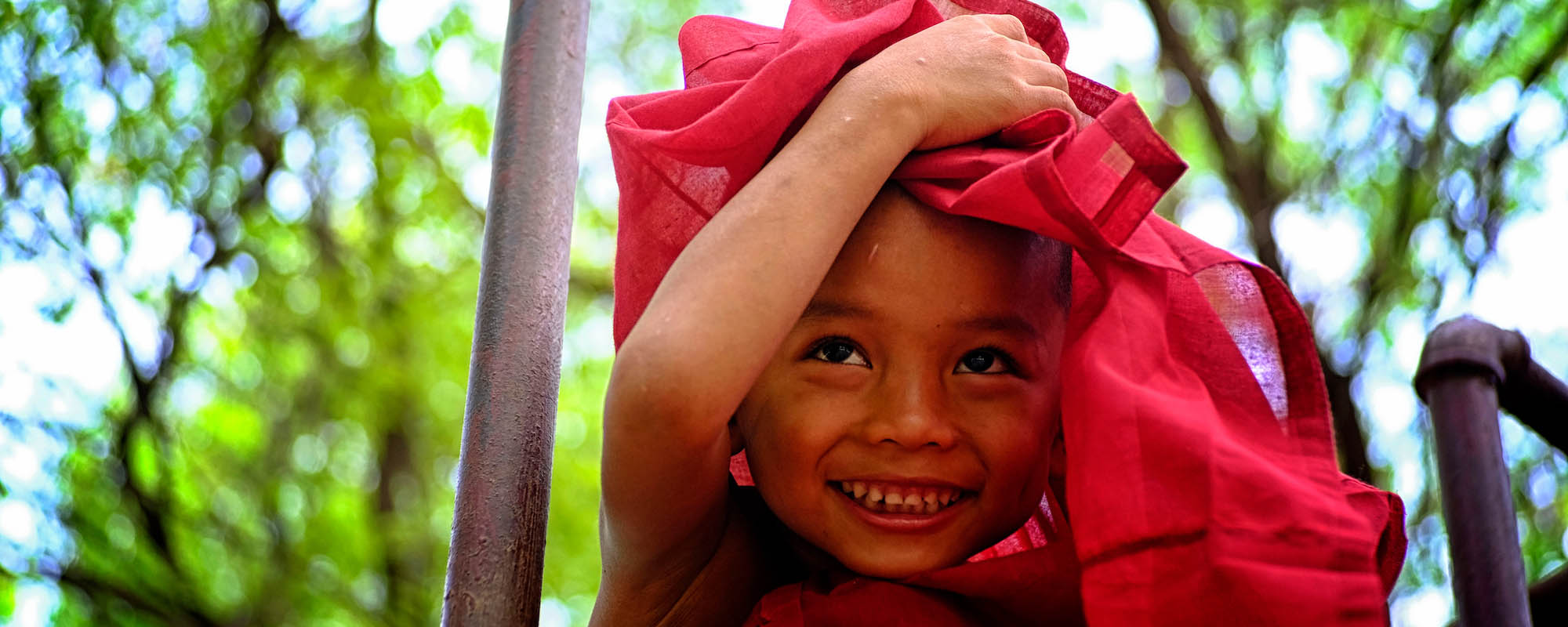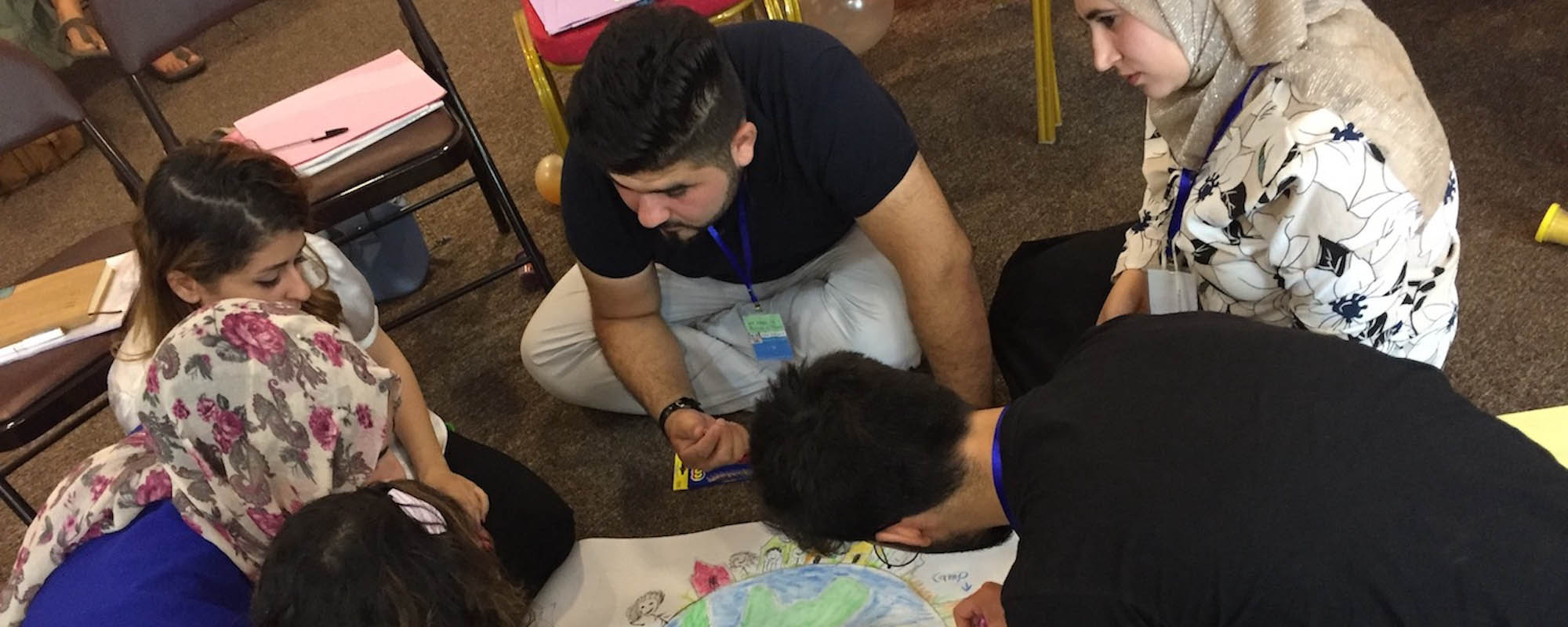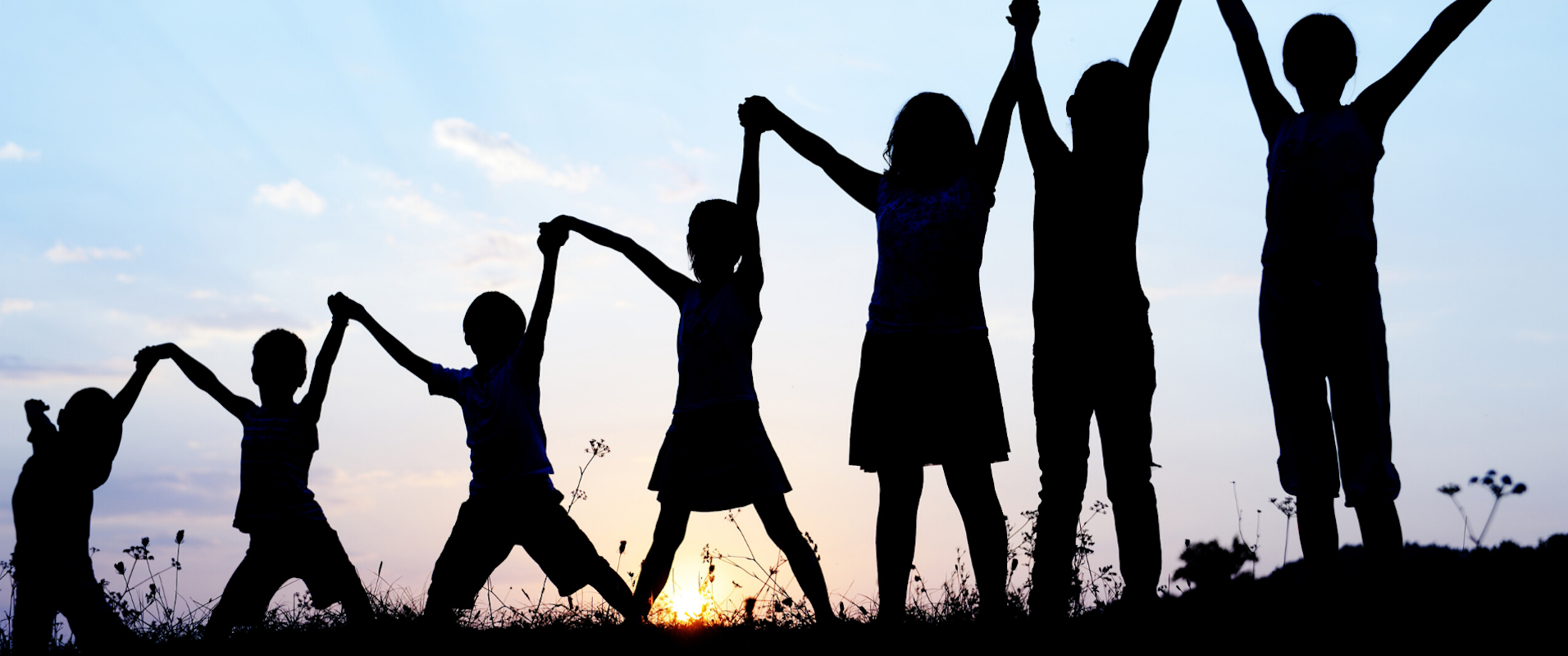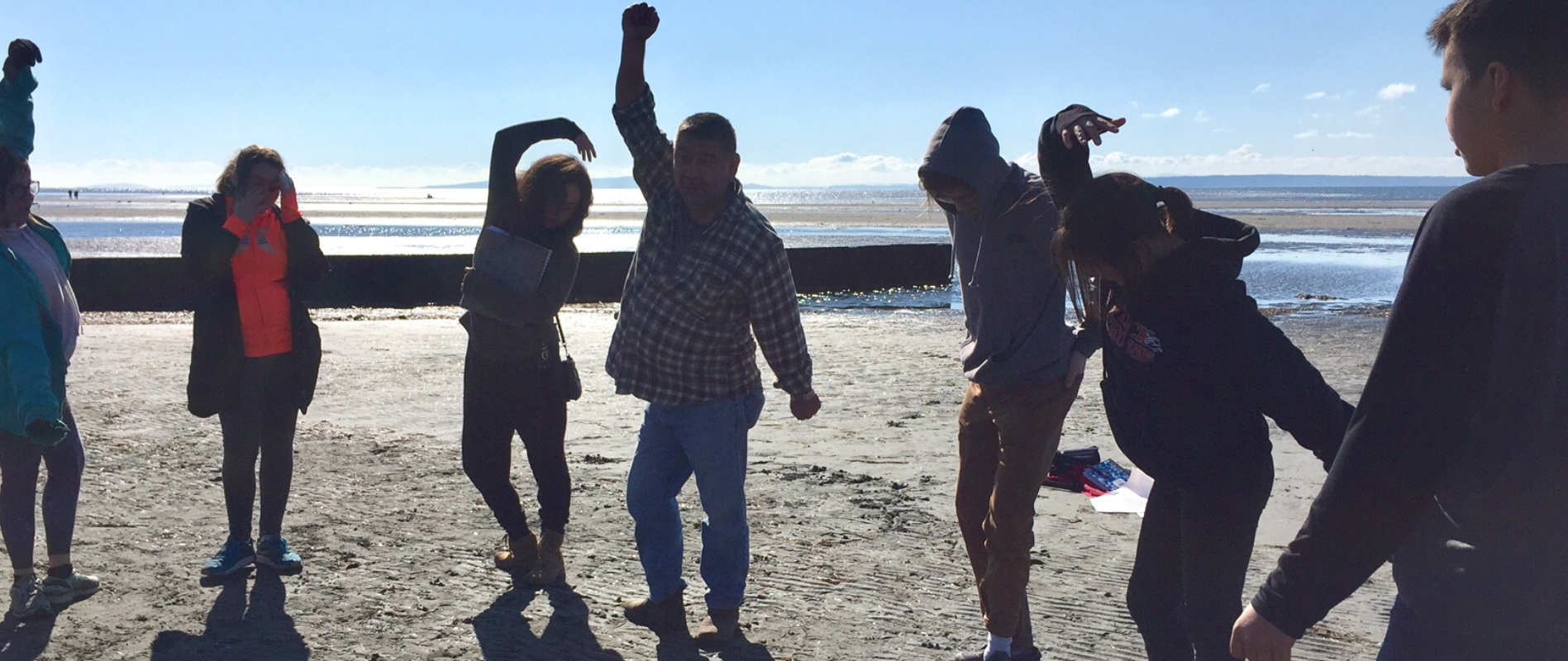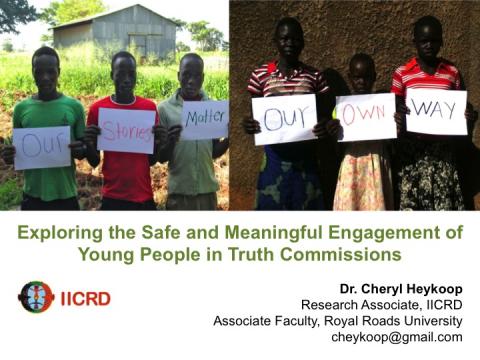
When wars and conflicts end, truth commissions are typically established to a historical and impartial record of the past. There is recognition in truth commissions that learning from young people about how they have been affected is important.
Yet, how does this engagement affect the young people who participate? At what cost? How can young people be included in ways that are safe and meaningful, and how can this be determined with young people themselves?
These are some of the critical questions posed by Associate, Dr. Cheryl Heykoop during a webinar called “Exploring Transitional Justice Through the Eyes of Young People: Reflections from Uganda,” held on February 26, 2016. The webinar, engaging more than 100 participants, was co-hosted by the Child Protection in Crisis Learning Network (CPCLN) and the International Institute for Child Rights and Development (IICRD). A recording of the webinar, also featuring Virginie Ladisch with the International Center for Transitional Justice, will be available on CPC Learning Network’s website.
Shedding light on research conducted with assistant Juliet Adoch, Dr. Heykoop’s presentation focused on how young people could be engaged in truth commissions in more supportive ways. The presentation, weaving in young people’s own stories, engaged participants in a conversation about the research’s core objectives, methods, lessons, and outcomes.
“One unexpected finding from the research was learning about the ways in which young people want to share their experiences,” says Dr. Heykoop. “Often, truth commissions focus on individual statements. We found that young people benefit from sharing in groups. It offers a natural support network, but needs to be done in such as way that it does not cause further stigmatization. This collective process can help to strengthen community.”
Lessons from Dr. Heykoop’s research will be published in special edition on children and armed conflict in the Journal of Peace Psychology (forthcoming). Her research has also been recognized as one of the five final winners in the Social Sciences and Humanities Research Council’s 2013 Storytellers Showcase.

